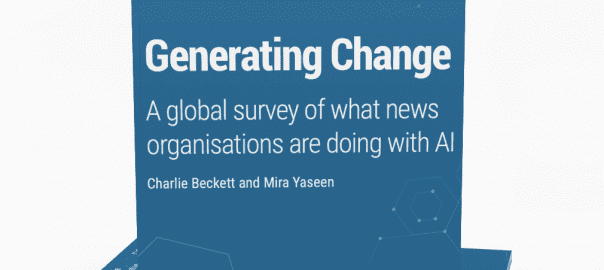Sept. 20, 2023 /Media/– In this comprehensive report, more than 120 editors, journalists, technologists and mediamakers from 105 organisations across 46 different countries shared their insights and experience on what news organisations are doing with AI. Continue reading
Category Archives: Business
Surveillance in the age of WhatsApp webinar by the London Stock Exchange Group of companies (LSEG)
The key takeaways of the “Surveillance in the age of WhatsApp” webinar by the London Stock Exchange Group of companies (LSEG) are as follows: Continue reading
Fenwick launches its first ever Ad Campaign
From 18th September 2023, Fenwick will be seen across the UK from Edinburgh to Bristol and Birmingham to London with the images designed for maximum impact. The campaign will be experienced across billboards from Old Street Roundabout and Edinburgh Picardy Place to Dalston Junction, through underground station takeovers, across the public transport network, and on the ground via guerilla activity. Continue reading
Prominent dark sides and hidden agendas of social media moderators
Mon, Sep 18 — It is important to note that not all social media moderators are motivated by these dark sides and hidden agendas. Many moderators are genuinely trying to create a safe and welcoming environment for users. However, the power that social media moderators wield means that it is important to be aware of the potential for abuse. Continue reading
What problems can AI solve in Africa?
Sept. 17, 2023 — Whether or not AI will save Africa is a complex question with no easy answer. There are many factors to consider, such as the specific ways in which AI is used, the level of infrastructure and development in Africa, and the social and political landscape. Continue reading
We are UK Zambians investing in the Diaspora
Sept. 6, 2023 Social/ — Zambians are not proud to be British. Zambia is an independent country, and its citizens are proud to be Zambian. However, there is a history of mutual respect between Zambia and Britain, which may explain why some Zambians may have positive feelings towards Britain. Continue reading
Wealthy…not rich.
Sept. 5, 2023 Finance/ — The concept of wealth and not rich is a complex one that is often misunderstood. In Africa, there is a strong emphasis on wealth and material possessions. This is due to a number of factors, including the history of colonialism, the legacy of poverty, and the desire to achieve social status. Continue reading
Is China’s Belt and Road Initiative (BRI) with Africa a one way street?
Sept. 5, 2023 /Africa Business/ — China’s Belt and Road Initiative (BRI) is a vast infrastructure project that aims to connect Asia, Africa, and Europe through a network of railways, roads, ports, and other infrastructure. The initiative has been praised by some for its potential to boost economic development in Africa, but it has also been criticized for being a one-way street that benefits China more than Africa. Continue reading
Wirex chooses Polygon CDK to build its upcoming payment-focused App Chain
Wirex, a global leader in crypto payments with over 6 million users, is using the Polygon CDK (Chain Development Kit) to build its payments-focused App Chain (W-Pay). Wirex has opted to use the Polygon CDK, an open-source codebase for launching ZK-powered L2 chains for Ethereum, on demand, to build its own payments-focused L2. All chains deployed using Polygon CDK are interoperable, with automatic access to the unified liquidity of all Polygon chains, and one-click access to the entire liquidity of Ethereum. They also offer the enhanced security of zk proofs and near-instant finality. Continue reading
Horizon Robotics Showcases Latest Production-Grade Driving Assistance Solutions at IAA Mobility 2023
Horizon Robotics, a leading provider of energy-efficient computing solutions for advanced driver assistance systems (ADAS) and automated driving (AD) for consumer vehicles in China, is proud to attend the IAA Mobility 2023 in Munich Germany, one of the most prestigious automotive events worldwide. Continue reading










